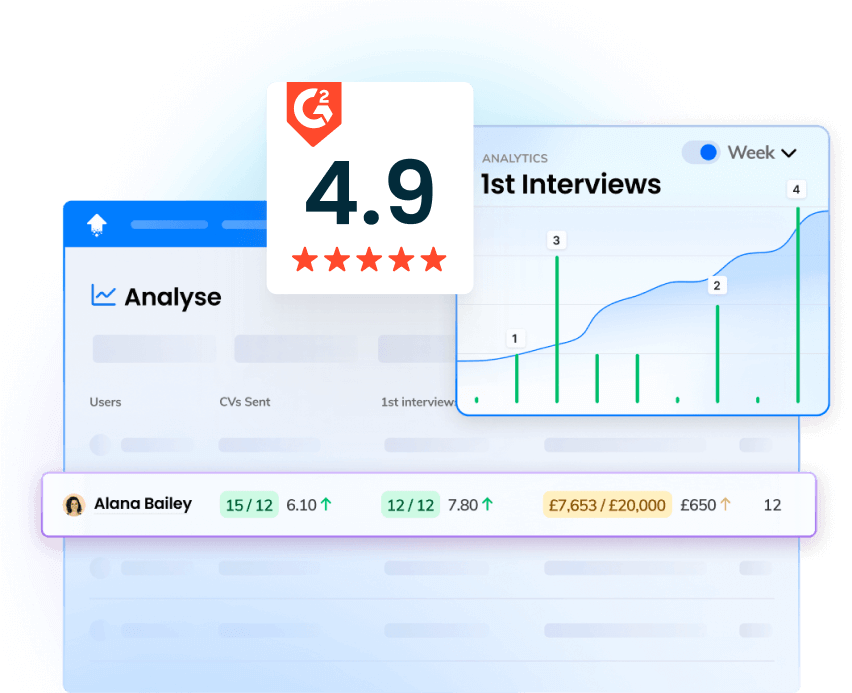Designing the Perfect Commission Plan
Sorry to disappoint you, but there’s no such thing as the “perfect commission plan”.
However, there is a perfect plan for your organisation — and it’s your job to design it.
But whatever the specifics of your business, you’ll be on the right track if you follow these sales commission plans best practices:
1. Consider Your Sales Goals
It’s easy to think of a commission plan as simply a way to attract and retain top sales talent.
Sure, it’s partly about that. But it’s also about ensuring your reps' performance aligns with your overarching business goals.
For instance, imagine a company — let’s call them Compu-Global-Hyper-Mega-Net — sells two products.
Product A undercuts your rivals, making it an easy sell — but the profit margins are poor.
Product B targets a less competitive niche market, priced less aggressively, which translates to healthier margins. But finding prospects, engaging them, and closing the deal takes longer.
If Compu-Global-Hyper-Mega-Net paid the same compensation, reps would prioritise Product A. So the company’s sales leaders might decide to skew the commission structure to promote Product B.
2. Find Relevant Rewards for Different Sales Roles
A sales manager commission structure should look different for an entry-level rep or a regional sales director because they perform very different roles.
So while a revenue or sales volume-based commission plan might be the obvious approach, it may not accurately reflect the day-to-day actions of individuals on your team.
Let’s consider how goals and commissions might vary across a sales team (N.B. for simplicity’s sake, we’ll look at entry-level, mid-level, and senior roles rather than specific positions):
| Role |
Responsibility |
Example Commission Plan |
| Entry-level |
Keep pipeline full of qualified leads and meetings |
Fixed sum per qualified meeting booked |
| Mid-level |
Nurture and close smaller deals |
Percentage of individual revenue generated |
| Senior-level |
Manage sales team and strategy |
Percentage of team revenue generated |
3. Analyse Industry Standards
How much commission does a sales rep make?
That all depends on your industry.
Per Monster, the following industries have some of the UK’s most attractive commission structures…
- Financial advice
- Luxury products
- Digital media
- Medical devices
- Tech
- Consumer packaged goods
If you’re in one of those sectors, expect to pay more generous commissions to attract top sales talent. But whatever your niche, it’s worth digging into benchmark data to ensure you don’t end up under or over-paying commissions.
At this stage, there’s another important question: what is a typical sales commission to salary ratio for your industry?
Unsurprisingly, there are also significant differences from one industry to the next.
In some, it’s possible to find jobs paying 100 per cent commission, meaning the salesperson theoretically doesn’t have any base salary (although they still need to be guaranteed at least the national minimum wage).
But a more typical salary-to-commission ratio is around 70:30.
So someone earning the average UK sales rep base salary of £38,244…
…would expect the potential to earn up to ~£11,500 in commission per year.
You’ll also have to consider any industry-specific quirks affecting your commission structure.
For instance, reps selling software-as-a-service products — which typically feature subscription-based pricing models — might expect to earn sales commission on recurring revenue they generate.
4. Calculate Total On-Target Earnings
On-target earnings (OTEs) are the amount you pay a sales rep who hits quota, comprising their base salary and commission. So a rep earning a £30,000 salary with a commission target of £10,000 would have an OTE of £40,000.
When designing your commission plan, it’s essential to ask yourself: can we afford it if every rep makes their OTE?
Sure, you’d presumably be swimming in new business. But existing clients might cancel, or your costs might increase.
Make sure the numbers add up before signing off your commission structure.
5. Align With Your Company Culture and Values
Company values and culture play a crucial role in attracting and retaining talent.
Indeed, two-thirds of people in the UK believe it’s important to work for a company that shares their values, with three in five saying they wouldn’t work for a company with conflicting values.
But developing a set of values and a defined culture is one thing; sticking to them is another.
By its very nature, sales can be a cut-throat world. It’s fine to encourage a dog-eat-dog mentality if this matches your culture — but if you preach about being one big, happy family who works together to hit common goals, don’t build a commission plan that prioritises individual performance.
At best, it makes you look a little hypocritical. At worst, it’ll demotivate your team and ruin your reputation.


















